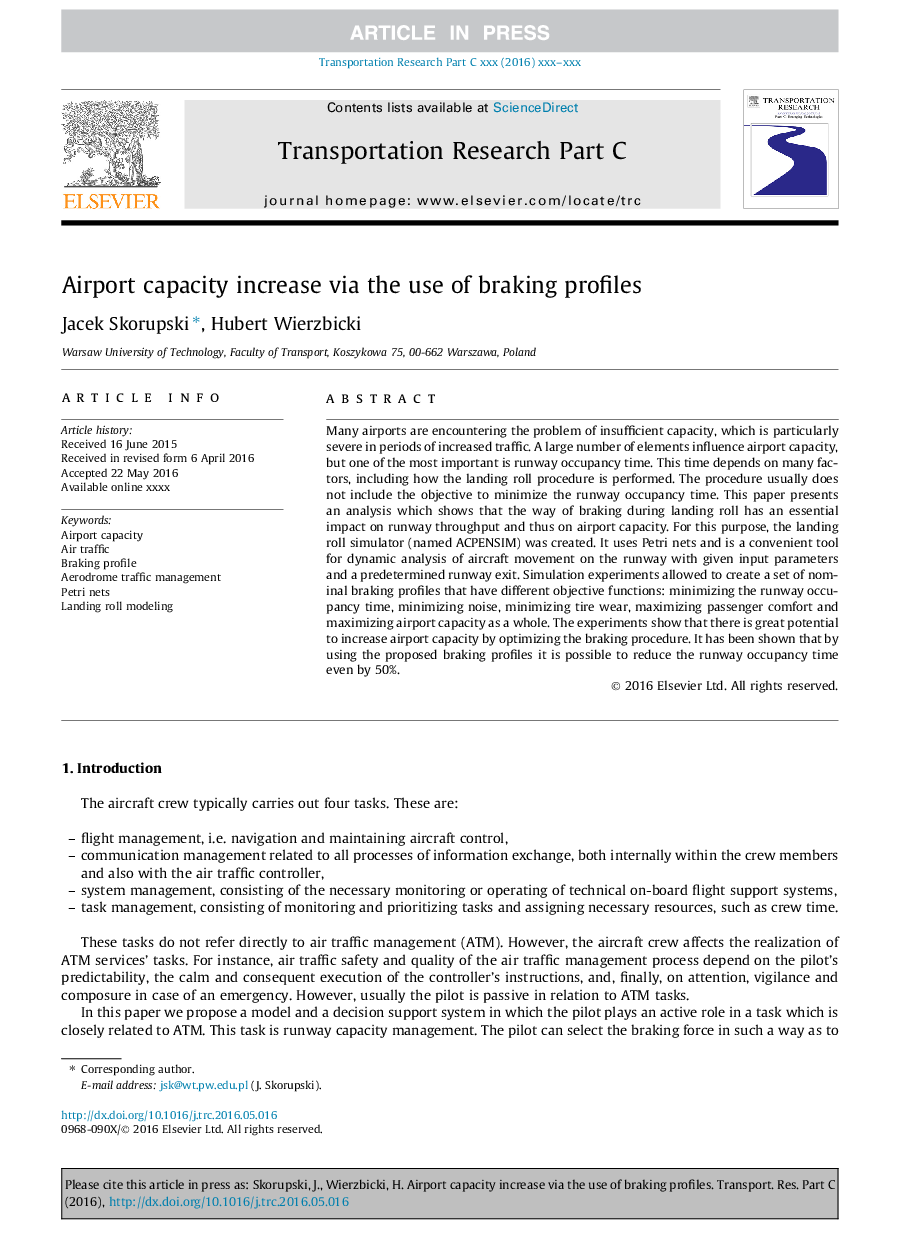ترجمه فارسی عنوان مقاله
افزایش ظرفیت فرودگاه از طریق استفاده از پروفایل های ترمز
عنوان انگلیسی
Airport capacity increase via the use of braking profiles
| کد مقاله | سال انتشار | تعداد صفحات مقاله انگلیسی |
|---|---|---|
| 89688 | 2017 | 18 صفحه PDF |
منبع

Publisher : Elsevier - Science Direct (الزویر - ساینس دایرکت)
Journal : Transportation Research Part C: Emerging Technologies, Volume 80, July 2017, Pages 467-484
ترجمه کلمات کلیدی
ظرفیت فرودگاه، ترافیک هوایی، مشخصات ترمز، مدیریت ترافیک فرودگاه، شبکه پتری، مدل سازی رول فرود
کلمات کلیدی انگلیسی
Airport capacity; Air traffic; Braking profile; Aerodrome traffic management; Petri nets; Landing roll modeling;

